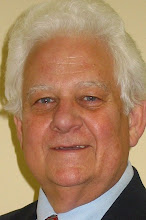Hearing is a complicated process that not only involves the ears and the complex parts of them, but also involves the nervous system and the part of the brain that receives and interprets the sounds, which is an important part of the auditory process. When you hear sounds, they go through the ear at the beginning of the hearing process and travel through the nervous system to the part of the brain that hears the sounds, and figures out what it is. As your hearing loss gets worse, these other parts of the system start to lose their ability to function as well, which is why it is important to get hearing loss remedied.
Auditory deprivation can occur over a period of time where the brain no longer receives enough sound stimulation to work properly, making it harder for you to recognize sounds even after you have gotten hearing aids, sometimes, if you have been hard of hearing for a long time. Many times, this is caused from auditory deprivation and it is a case where the process gets weaker through lack of use for so long.
If you think about auditory deprivation as similar to a body where you have not had much exercise or movement for a while, you can have all kinds of aches and pains trying to get back in shape. When the brain has been deprived of sound for so long, it will have a hard time getting back into shape to recognize them the way it once did.
Sometimes, people will try to get by with one hearing aid instead of purchasing the two they really need. Not only can this make it difficult to figure out what side of the room that sounds are coming from, but it can still cause auditory deprivation, as it applies to the ear that does not have sound coming through the process. It is like you are depriving that section of the auditory process from any exercise, but putting more effort on the other side of the auditory system to compensate.
Over the long run, auditory deprivation will set in or you are going to need to have your other hearing aid at full power which will cause feedback and squealing trying to compensate for this condition. Because you were meant to use both ears to hear with, it is advisable that you get hearing aids for both ears when you experience hearing loss, especially if it is due to aging. This is not necessarily the case if it was from a situational hearing loss situation, where only one ear was affected. Auditory deprivation will not occur because the other ear is still working through the hearing process and that section of the brain is still processing sounds.
It is important to understand that hearing aids won't restore lost hearing, but it can keep the hearing you have from deteriorating as quickly, which can be important. There is no sense in losing your ability to hear when there are aids to improve your quality of life and help the condition from getting worse.
Tuesday, December 29, 2009
Subscribe to:
Post Comments (Atom)





Informative read describing how to improve hearing. You describe nicely how to avoid auditory deprivation. Thanks for sharing such useful article with us.
ReplyDeleteRegards
Digital hearing aids
Yes I agree to Mikaeel very informative article. Hearing aid center really acts a big role from people suffering from hearing loss. I've known one in hearing center Castro Valley Ca.
ReplyDelete